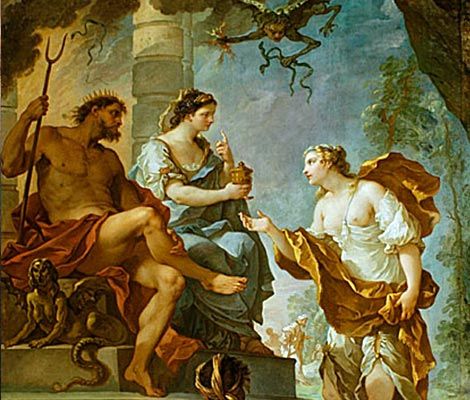Demeter is the goddess of the harvest and agriculture, who presided over grains and the fertility of the earth. As an instinct in women, the Demeter Instinct, therefore, represents fertility in the sense of satisfaction that a woman enjoys in "producing results." The "can-do" goddess in all women, who can deliver what she promises, and in having a daughter, Persephone, over whom she guards, is symbolically guarding the fruits of her artistic labors as a woman, and feeling the ecstatic excitement of so doing.
She is often described simply as the goddess of the harvest, she presided also over the sacred law, and the cycle of life and death.

The myth not only shows the devotion of a mother to a daughter in the devotion of a woman for her "life's purpose," but shows a lesson in avoiding selfishness in a woman needing to share her vision with the world at large. The tale recommends that "two thirds" of one's investment in promoting and publishing one's ideas and vision to the world at large, and keeping "one third" of the passion an enjoyment for one's self. This may remind us of the role of Interdependence in the "shared reality" of intimacy in a relationship, where approximately one-third of one's resources ought to be toward the relationships, and approximately two-thirds of one's invested psychological resources ought to be toward the self.

